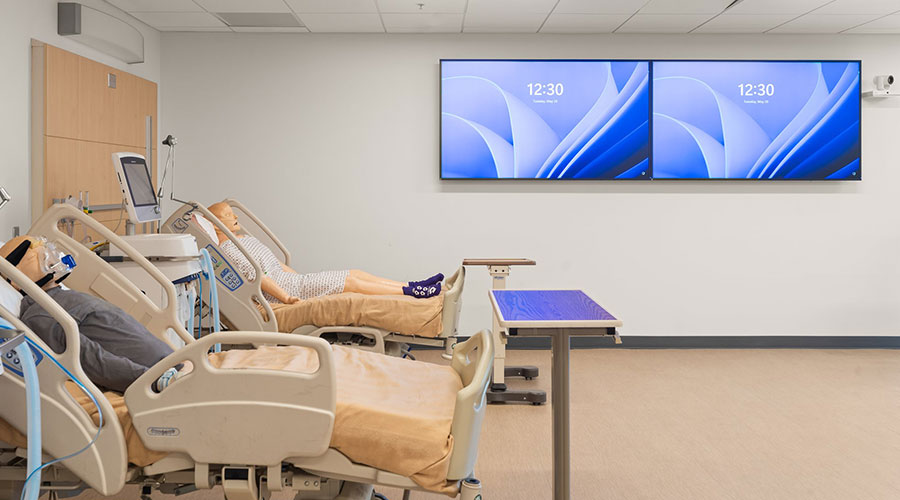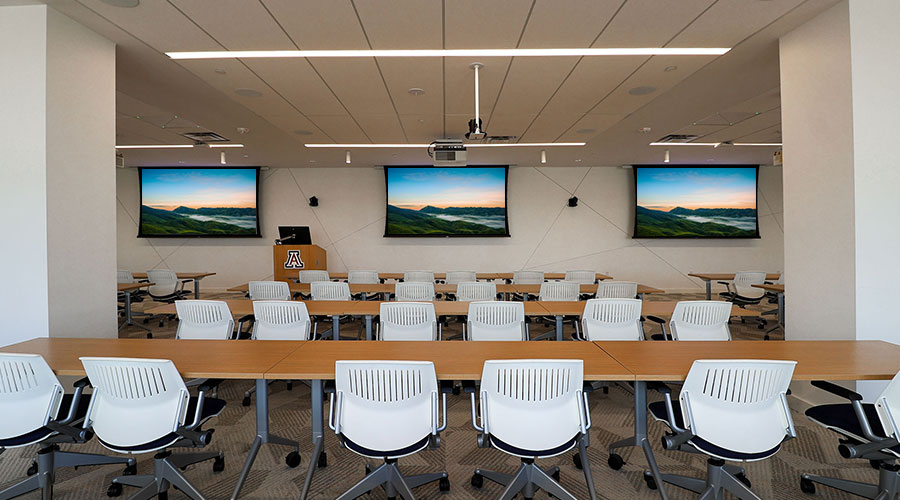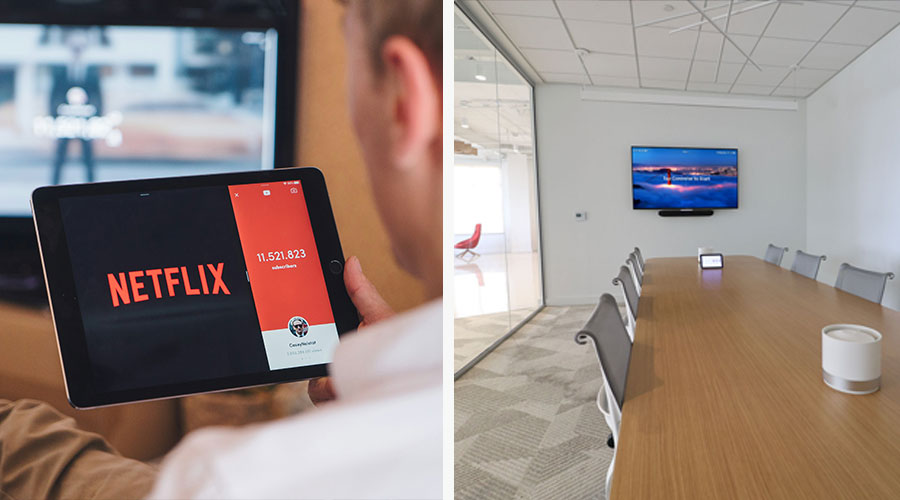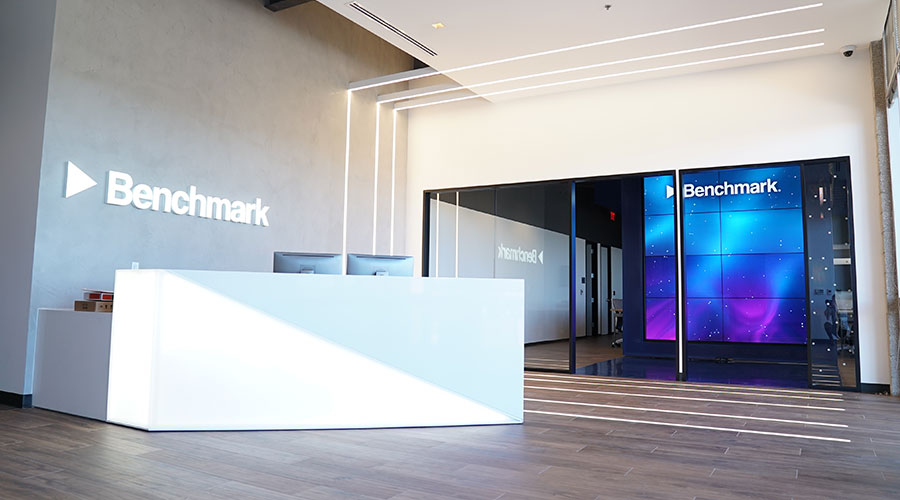In healthcare, small details can make a big difference. Patients often enter a hospital or clinic feeling anxious, overwhelmed, or pressed for time. Staff members, meanwhile, balance heavy workloads and complex workflows that leave little room for error. Technology that improves communication, reduces friction, and supports both sides of this relationship has the power to transform outcomes. That is where modern healthcare AV integration comes in.
on Tuesday, 23 September 2025.
In higher education, technology is supposed to be an enabler. But for too many CIOs and IT Directors, managing AV across multiple campuses feels like a constant game of catch-up. One school invests in Zoom Rooms, another prefers Teams, a third cobbles together legacy hardware from three different vendors. The result? Faculty frustration, student complaints, and an IT staff drowning in support tickets for systems that never seem to work the same way twice.
This isn’t just an inconvenience. Fragmented AV strategies across campuses create hidden costs, erode productivity, and undermine the institution’s ability to deliver consistent, modern learning experiences. When every classroom feels different, training faculty is harder, supporting users is more resource-intensive, and scaling up new initiatives becomes nearly impossible.
on Thursday, 18 September 2025.
Posted in Higher Education
When it comes to AV integration, the stakes are high. A poor choice can lead to unreliable systems, escalating support costs, and frustrated employees who avoid using the technology altogether. The right choice, however, becomes an extension of your team, delivering reliable systems, measurable ROI, and long-term peace of mind. The challenge is knowing how to separate the vendors who over-promise and under-deliver from the partners who truly add value.
on Tuesday, 16 September 2025.
Posted in Audio Video System Integrator, Commercial AV Integrator
Industry research from Gartner and Nemertes consistently shows that a majority of unified communication (UC) rollouts underperform against expectations—often cited as roughly 70% failing to meet their goals. Companies invest heavily in the promise of seamless collaboration, fewer silos, and stronger productivity, yet too often adoption lags, employees grow frustrated, and executives question whether the investment was worth it. This is a reality many CIOs and IT Directors know all too well.
The critical question becomes: why do these platforms fail, and more importantly, how can you fix them?
on Thursday, 11 September 2025.
Posted in Unified Communications Phoenix, AZ, Unified Communication as a Service, Unified Communications , Unified Communications Solutions
Did you know that more than 90% of employees use streaming services daily and nearly everyone interacts with voice assistants or video calls at home? Those habits are shaping what they expect in the workplace.
Imagine this: At home, your employees can stream a 4K movie with a voice command, hop on FaceTime in seconds, and control their entire environment with a smartphone. But when they walk into your conference room, they’re fumbling with remotes, adapters, and a dozen logins just to start a meeting.
That disconnect isn’t just frustrating, it’s reshaping the future of commercial AV. Today’s workforce, students, and customers don’t separate their personal tech experiences from their professional ones. If Netflix can deliver instant, seamless, and beautiful user experiences, why can’t your workplace or campus?
This shift in consumer expectation is driving some of the most important AV trends we’re seeing today. And for organizations willing to embrace it, the payoff goes far beyond convenience, it’s about ROI, competitive advantage, and reimagining how people connect in your spaces.
on Tuesday, 09 September 2025.
Posted in Audio-Visual Systems, Boardroom Technology, Video Conferencing
Part 2: From Strategy to Action
In Part 1 of this series, we explored the strategic mindset behind AV system maintenance: why it’s not just about fixing technology when it breaks, but about aligning it with your broader facility goals. Now, let’s shift from strategy to action.
This second installment walks through what proactive maintenance looks like in practice, with real-world examples that show how facility managers can stay ahead of AV issues. Whether you manage it in-house or through a Comprehensive Service & Maintenance Agreement (CSMA), the goal is the same: reliability, predictability, and peace of mind.
on Friday, 05 September 2025.
Posted in Managed Support Services
Seven seconds. That’s all it takes for a first impression to harden into a lasting perception. That's all it takes when a prospective client is stepping through your lobby doors deciding what kind of company you are. The polished floors, lighting, and welcome desk all play a role, but in today’s business climate, it’s the technology that speaks the loudest. A dynamic video wall might display a looping montage of your latest product launches, a real-time social media feed celebrating client wins, or a stunning visual journey through your company’s history. Interactive displays could let visitors navigate a touchscreen map to find their meeting room, or browse recent sustainability initiatives. Digital signage might greet them by name and highlight relevant case studies from their industry.
on Wednesday, 13 August 2025.
Posted in Digital Signage, Digital Signage Display , Digital Workplace, Video Wall, Video Wall Display, Video Wall Installation
Part 1: The Strategic View
Picture this: It’s 8:45 AM. Your day is mapped out with back-to-back meetings, a budget review, and a walk-through of the new lobby renovation. Then the call comes in: the AV system in your flagship conference room is down. Not glitchy, not laggy, but completely offline. In fifteen minutes, your executive team is supposed to pitch to a high-profile client. The vendor you used is “on their way,” but it’s already too late to save the impression.
For a facility manager, moments like these aren’t just inconvenient; they’re reputation-shaking. One failed system can throw an entire day, department, or event into chaos. The difference between a crisis and a non-event often comes down to one thing: whether AV maintenance is handled strategically or reactively.
That’s why this first part of our two-part series focuses on the strategic mindset behind AV system maintenance. In Part 2, we’ll get into the nuts and bolts of proactive upkeep and how Comprehensive Service & Maintenance Agreements (CSMAs) keep your facility ahead of the curve. But first, let’s talk strategy.
on Tuesday, 12 August 2025.
Posted in Audio-Visual Systems, Audiovisual Equipment, AV Integration
 How AV Technology Enhances Patient Experience and Staff Efficiency
How AV Technology Enhances Patient Experience and Staff Efficiency 







